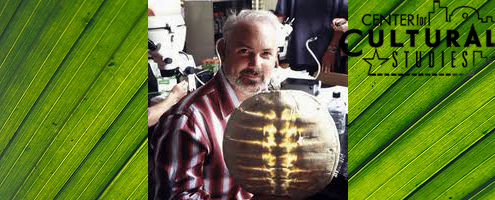4:00pm, Humanities 1, Room 210
Co-sponsored by UCSC Philosophy, History of Consciousness, Center for Cultural Studies, and the Science and Justice Working Group.
ABSTRACT: The notion of the “biological individual” is crucial to studies of genetics, immunology, evolution, development, anatomy, and physiology. Each of these biological sub-disciplines has a specific conception of individuality, which has historically provided conceptual contexts for integrating newly acquired data. During the past decade, nucleic acid analysis, especially genomic sequencing and high-throughput RNA techniques, has challenged each of these disciplinary definitions by finding significant interactions of animals and plants with symbiotic microorganisms that disrupt the boundaries which heretofore had characterized the biological individual. Animals cannot be considered individuals by anatomical, or physiological criteria, because a diversity of symbionts are both present and functional in completing metabolic pathways and serving other physiological functions. Similarly, these new studies have shown that animal development is incomplete without symbionts. Symbionts also constitute a second mode of genetic inheritance, providing selectable genetic variation for natural selection. The immune system also develops, in part, in dialogue with symbionts, and thereby functions as a mechanism for integrating microbes into the animal-cell community. Recognizing the “holobiont”—the multicellular eukaryote plus its colonies of persistent symbionts– as a critically important unit of anatomy, development, physiology, immunology, and evolution, opens up new investigative avenues and conceptually challenges the ways in which the biological sub-disciplines have heretofore characterized living entities.
ABOUT: Scott F. Gilbert is the Howard A. Schneiderman Professor of Biology at Swarthmore College, where he teaches developmental genetics, embryology, and the history and critiques of biology. He received his B.A. in both biology and religion from Wesleyan University (1971), and he earned his PhD in biology from the pediatric genetics laboratory of Dr. Barbara Migeon at the Johns Hopkins University (1976). His M.A. in the history of science, also from The Johns Hopkins University, was done under the supervision of Dr. Donna Haraway. He pursued postdoctoral research at the University of Wisconsin in the laboratories of Dr. Masayasu Nomura and Dr. Robert Auerbach. Dr. Gilbert has been Chair of the Division of Developmental and Cell Biology of the Society for Integrative and Comparative Biology, and he is a member of the education committee of the Society for Developmental Biology.
He has also been elected a fellow of the AAAS and the St. Petersburg Society of Naturalists. He currently has three books in print:Developmental Biology (a textbook in its eighth edition), Bioethics and the New Embryology (a volume, co-authored with two students, that discusses new findings in developmental biology with respect to philosophy and religion), and Ecological Developmental Biology, a textbook co-authored with David Epel which integrates developmental plasticity, epigenetics, and symbiosis into discussions of medicine and evolution. Scott has received several awards, including the Medal of François I from the Collège de France, the Dwight J. Ingle Memorial Writing Award, the Choice Outstanding Academic Book Award, honorary doctorates from the University of Helsinki and the University of Tartu, and a John Simon Guggenheim Foundation Grant. In 2002, the Society for Developmental Biology awarded him its first Viktor Hamburger Prize for Excellence in Education, and in 2004, he was awarded the Kowalevsky Prize in Evolutionary Developmental Biology. He has recently become a Finland Distinguished Professor at the University of Helsinki and has received a grant from the National Science Foundation to work on that most interesting of topics-how the turtle forms its shell-and he continues to do research and write in both developmental biology and in the history and philosophy of biology.
Outside the class and laboratory, his interests include hiking, photography, and he plays piano in KNISH, one of Swarthmore’s premier Klezmer bands

